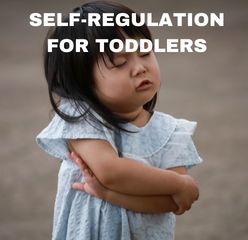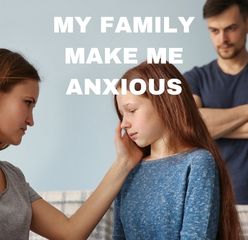Self-regulation activities for toddlers are often required to calm kids down. Toddlers tend to feel everything in a more intense way than adults do because they have not yet learned how to control their reactions to situations. If we are honest though, many adults are exactly the same!
What is self-regulation in kids?
Self-regulation is where kids effectively process their thoughts and feelings without the help of others and in such a manner as to be able to adjust their behaviour or attitude in a positive way to suit their situation at hand.
Self-regulation is important for kids as it helps them to be able to learn. Once they can control the way they feel and the things they are doing, they can focus long enough and well enough to take in information. This is why self-regulation activities for toddlers are so important. They can make it easier for toddlers to achieve educational success. It affects how we function as human beings later in life.
In this article, we will look at some of the best self-regulation activities for toddlers to achieve self-mastery because that is essentially the purpose of self-regulation.
First though, did you know that self-regulation usually occurs in phases?

What are the three phases of self-regulation?
Self-regulation can be broken into three phases:
- Emotional self-regulation. This enables toddlers to focus on tasks without having their emotions frustrate them, for example. It involves a toddler having the ability to manage any negative emotions they may have. Some research suggests that emotional self-regulation is dictated by a baby’s temperament. However, various self-regulation activities for toddlers can certainly help them to develop this skill.
READ: What is your baby’s temperament?
- Sensory regulation. A lot of kids with sensory processing problems have issues with self-regulation. Sensory regulation means achieving a certain level of sensory control whereby you do not under-react or overreact to any sensory stimuli.
- Cognitive regulation. This is where toddlers learn the ability to control their beliefs or nearly-fully formed values and perceptions about the world so that they can achieve their goals.
Toddlers do not generally achieve all three phases at the same time. Self-regulation for toddlers will require some help even if some of it happens instinctively or with maturity. Sometimes, how quickly it is achieved depends on whether it is already poor and if so, the reason why it is poor.
7 Common reasons for poor self-regulation

Here are some of the most common reasons why a kid might struggle to self-regulate.
- Skipping naps. When kids are lacking sleep due to skipping naps, they have less control of their behaviour and particularly of their reactions towards things. They struggle to adapt to new situations and environments, for example. Research has found that when toddlers skip their naps, they find it challenging to do difficult tasks and they do not act at their usual age-level of maturity.
- Premature birth. Some correlation has been found between toddlers born prematurely and an inability to self-regulate. Inadequate long-term aftercare of prematurely born babies can lead to toddlers who are emotionally underdeveloped and that is even where there are no neurological deficits.
- Maternal responses to toddlers’ behaviour. Toddlers learn a lot from watching their parents and other adults around them. They are largely spending plenty of time with their mothers. This is why their mothers’ responses to their behaviour can inform the way that they themselves learn to react to negative situations. Mothers who exhibit traits of high anxiety, for example, can lead their toddlers to have negative reactions to stressful situations.
READ: How to deal with Family Anxiety
- Overstimulation. When a toddler is overstimulated, they might find it difficult to isolate various emotions being felt at one time and this can lead to difficulties with emotional self-regulation.
- Learning disabilities. Self-regulation activities for preschoolers can sometimes be necessary where a child is dealing with learning disabilities. Certain learning disabilities can make it difficult for toddlers to focus on one activity at a time. The difficulty in trying to focus is in itself a cognitive regulation issue that can lead to exhibiting emotional regulation challenges as well.
- Psychological trauma. Childhood trauma reaching far back even into the first year of life when human beings are more aware of major life events than they realize can lead to difficulties with self-regulation later down the line.
READ: Childhood trauma symptoms in adults
- Illness. When toddlers are physically unwell, they might find it difficult to self-regulate cognitively and emotionally as well. This is true even for adults. We know that adults face this struggle with self-regulation too. However, the struggle is usually expected to improve with age and maturity.
At what age can a child self-regulate?
It is around the age of two that children start to learn self-control and then by age 3, they will generally be able to use their past experiences to inform how they should react in different kinds of situations that require self-control.
The earlier that parents and educators look into intentionally introducing self-regulation activities into a toddler’s life, the easier it will be for them to control themselves when they are much older.

20 self-regulation activities for toddlers
Disclaimer: At no additional cost to you, I may gain a small commission from purchases made through links on this page.
In a Finnish study conducted with twenty eight children between the ages of 4 and 7, it was decided that children and their teachers working together produced the best results with the development of self-regulation skills. Seeing the child as the problem was counter-productive. Therefore, in all self-regulation activities for toddlers, it is important that teachers and/or parents are involved.
Self-regulation activities for preschoolers do not always have to be elaborate. These techniques can be very simple, quick but effective. They can also be a lot of fun. Find a list of them below.
- Role modeling. As we have already established, working with the adults who are part of their ‘village’ is most useful for preschoolers. This is more so the case when it comes to ensuring that, as parents, you are constantly modeling self-regulation for your kids.
- Counting breaths. Focusing on breaths helps to remove distractions and create calm.
- Feelings check-in. Stopping periodically to identify feelings with toddlers is helpful for making sure that they do not build up negative energy throughout the course of the day that later spills out in harmful ways.
- Play Simon Says. This is where one player takes on the role of Simon and instructs the other players to perform certain tasks.
- Blowing bubbles. This act helps to calm children as it is not only fun but also works on regulating your breathing.
- Calm corners. Calm corners are useful to have in the home as they can be filled with as many peaceful and pleasurable items as you know your toddler would like. It is a sweet little spot in your home where your toddler can go to be alone if they need to.
- Baking. The act of baking is calming because it usually requires some amount of measuring and sometimes a bit of manual effort too.
- Stress balls. This is a great physical way to let out pent up energy.
- Musical chairs. This fun game teaches toddlers to be patient and also forces them to learn to settle conflicts without getting angry.
- Freeze tag. There is a lot of starting and stopping involved and this helps kids to learn to listen as they have to hear the instructions being called out. They also get to re-centre themselves during the moments of quiet or ‘freezing’.
- Parental responsiveness to kids. As parents, it would be helpful for you to make a conscious effort to constantly be responsive to your toddler struggling with emotional self-regulation.
- Mindfulness exercises. These help kids to be able to experience their emotions in a calmer and more accepting manner.
- Listening on purpose. Kids can be given a listening activity on which they are instructed to obtain as much information from a recording or reading as they can. It will take some focus for them to do this and that focus is what will help with self-regulation.
- Join-the-dots. This activity is a fun one that can double as revision for numbers.
- Yoga. Yes, kids can engage in yoga as well. It is an excellent daily family activity.
- Playdough. Playdough can work for kids in much the same way as a stress ball would. They also get a creative outlet in the process.
- Goal-setting. Setting goals in itself can be a therapeutic process. Goal setting can be done with toddlers as well as with adults. The aims or objectives a kid sets for themselves can be very simple. It is the process of coming up with those goals that fosters self-regulation.
- Fidget tools. Like stress balls, fidget tools provide a toddler with something they can physically do that is also an outlet for any stress they feel.
- Imaginary hugs. This is a grounding technique that you can teach your toddler to use for self-soothing.
- Reading books about feelings. Going through books about feelings with your toddler gives them the opportunity to learn about different kinds of feelings and put a label on them. Labelling their feelings or giving them a name can help them to deal with those feelings better. Here are five great recommendations for books about feelings that you can for self-regulation for toddlers.
Books to help toddlers in self-regulation
Which of these self-regulation activities for toddlers will you be trying out first?









2 Comments
Physical activity without restraints, and a lot of it, is a great self-regulatory activity. As well as being in nature, also a lot. We don’t realize sometimes how much energy they actually have…
These are really good tips for self-regulation for toddlers. My daughter worked in daycare and did apply some of these ideas.